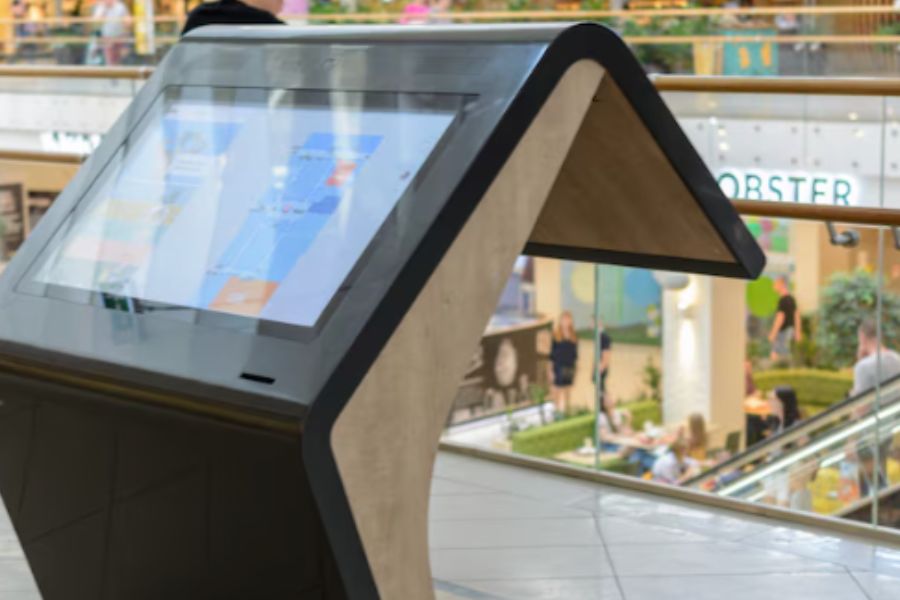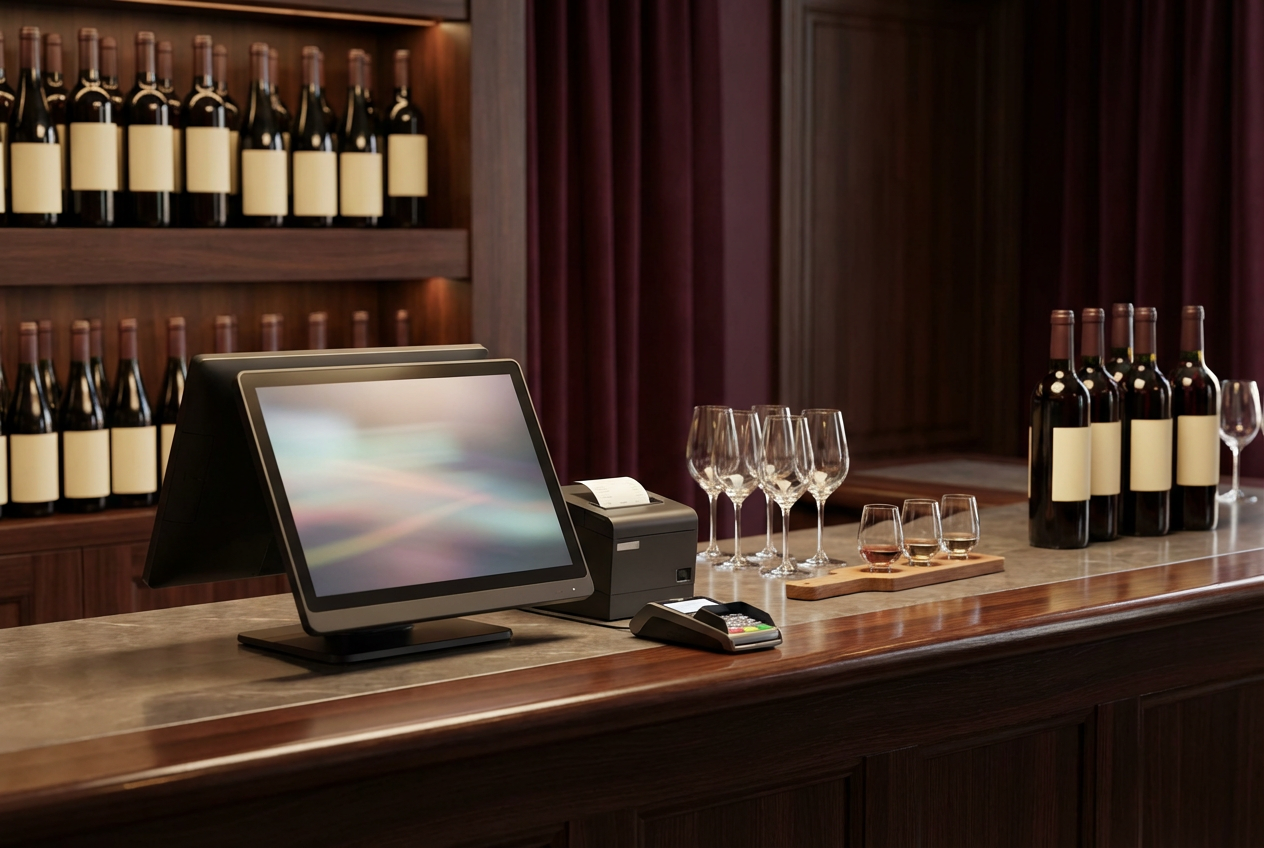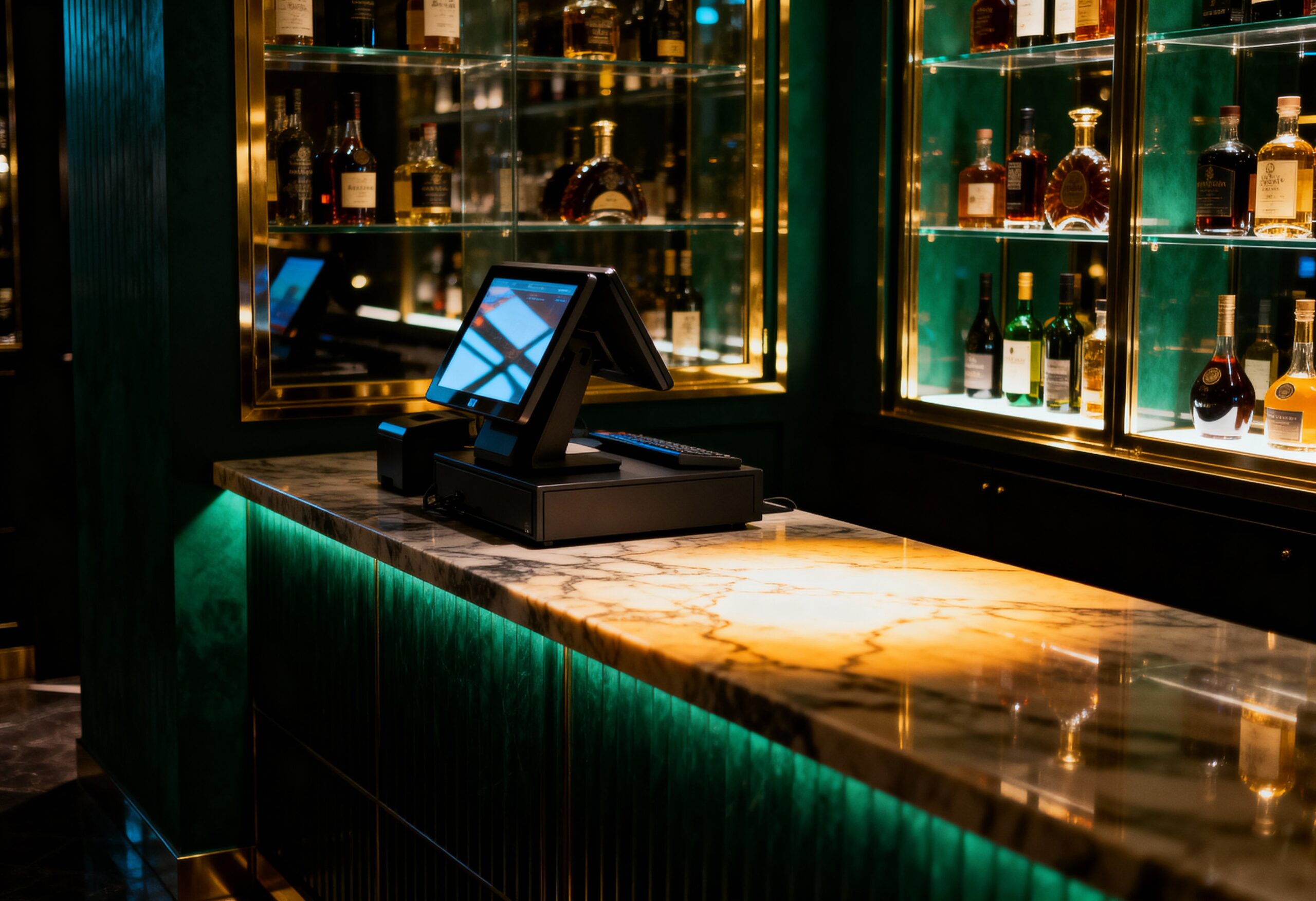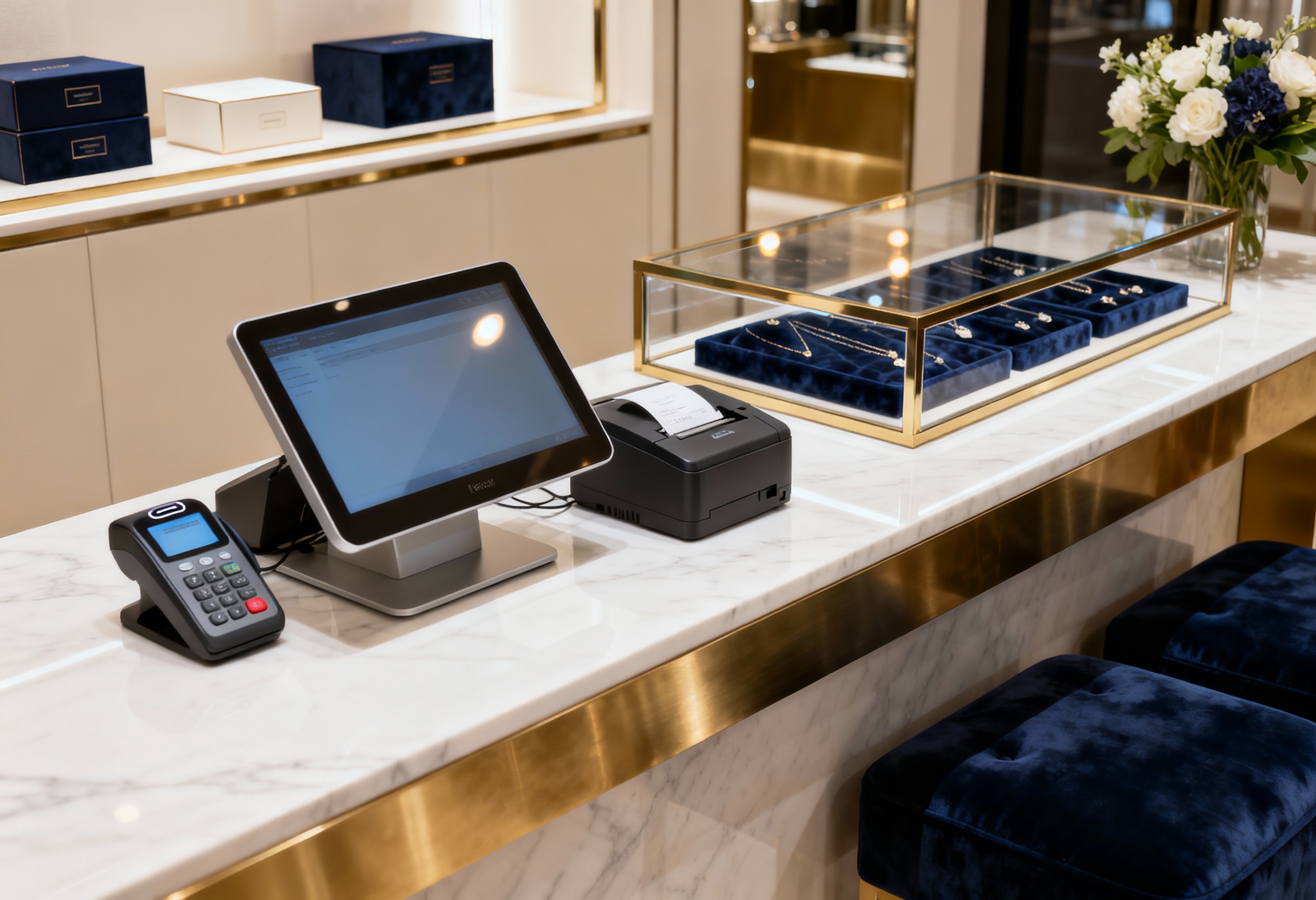Managing multiple vendors in a booth mall requires smart technology solutions that streamline operations and boost efficiency. A well-designed Point of Sale (POS) system specifically built for booth malls can transform complex vendor tracking into a straightforward process.
Booth mall operators face unique challenges when handling diverse vendor inventories, sales records, and commission structures. The right booth mall POS system serves as a central hub that automates vendor management tasks, processes transactions smoothly, and generates accurate reports for all stakeholders. Each vendor maintains individual control over their sales data through dedicated access points, creating a transparent and organized marketplace environment.
Highlights:
- Booth malls create a supportive retail environment where small vendors can grow their businesses through shared space, community support, and direct customer access.
- A POS system built for booth malls helps vendors manage sales faster, track inventory accurately, oversee staff, and connect with other software tools to stay organized and scale with ease.
The Significance of Booth Malls
Booth malls represent a dynamic retail model that connects local entrepreneurs with ready customers under one roof. These marketplaces create opportunities for small business owners who want to establish their presence without the significant investment required for a standalone store. Vendors share overhead costs, benefit from collective foot traffic, and build a community of like-minded business owners.
The appeal of booth malls extends beyond financial advantages. They offer shoppers a diverse shopping experience, featuring unique products and personalized service across multiple independent retailers.
This format fosters entrepreneurship and promotes local economic growth by reducing barriers to entry for new businesses. Many successful retailers started their journey in booth malls before expanding to larger operations.
These retail spaces also serve as incubators for testing business concepts and products. Vendors can gauge market response, adjust their offerings, and scale their operations based on real customer feedback. The collaborative environment fosters knowledge sharing and creates networking opportunities among vendors, resulting in stronger business relationships and enhanced market understanding.
How to Keep Vendor Sales Organized with a POS System Built for Booth Malls?
Let’s check out how a POS system that is specially built for booth malls can help organize vendor sales effectively!
Accelerate Sales Completion
A dedicated POS system streamlines sales operations through automated transaction processing. Staff members scan items and process payments through multiple methods, including cash, credit cards, and digital platforms. Then, the system handles calculations instantly, which speeds up customer service and reduces waiting times.
This automation leads to faster checkouts, enhanced customer satisfaction, and increased sales potential for each vendor booth.
The unified platform standardizes transaction procedures across all booths, creating a seamless shopping experience for customers throughout the mall. These features work together to maximize operational efficiency and boost vendor productivity.
►►► Optimal solution set for businesses: Multi store POS, Next-gen POS, Inventory Management Software (MSI), Self Service, Automation, Backorders
Smart Stock Control
The real-time inventory tracking capabilities of booth mall POS systems transform stock management practices. The software alerts vendors when specific items need replenishment, helping maintain optimal stock levels at all times. This immediate access to inventory data enables vendors to make quick, data-driven decisions about restocking and purchasing.
In addition, the system tracks product performance metrics, showing which items sell best and which need promotional attention. Vendors can adjust their inventory strategies based on concrete sales data rather than guesswork.
Each booth benefits from automated stock alerts and detailed performance analytics that guide smart inventory investments.
Customer Engagement Solutions
Modern POS systems excel at gathering and organizing customer data to strengthen vendor-customer connections. The software records detailed purchase histories and customer information, creating comprehensive profiles that guide personalized service. This data empowers vendors to suggest relevant products and tailor promotions to individual shopping patterns.
Loyalty programs integrated into the POS track customer rewards automatically, encouraging repeat visits. Vendors access customer insights through user-friendly dashboards, making it simple to identify and reward their most valuable customers.
The system’s automated communication features help maintain consistent engagement through targeted promotions and special offers.
Enhanced Reporting and Analytics
Advanced POS analytics provide booth mall vendors with detailed performance insights that drive business growth. The system generates comprehensive reports on daily sales patterns, product performance, and peak business hours. These analytics reveal which items generate the highest profits, when to schedule additional staff, and how to adjust pricing strategies.
Vendors receive automated performance summaries that highlight successful products and areas needing attention. The reporting tools break down complex data into actionable insights, supporting strategic decision-making.
This analytical approach helps vendors optimize their operations and maximize revenue potential in the competitive booth mall environment.
Business Software Ecosystem
Advanced POS systems act as central hubs that connect multiple business applications in booth mall operations. The software seamlessly syncs with popular accounting platforms, eCommerce systems, and inventory management tools. This integration eliminates duplicate data entry and ensures accurate records across all platforms.
Furthermore, real-time data synchronization keeps online and in-store inventory levels accurate, preventing overselling and customer disappointment. The unified system facilitates a seamless flow of information between different business functions, enabling vendors to manage their operations through a single dashboard. Digital receipts and automated bookkeeping reduce paperwork and minimize human error.
Staff Oversight and Scheduling
Modern booth mall POS systems simplify staff management through integrated scheduling and performance tracking features.
The software automatically records employee hours, sales metrics, and service efficiency. Managers access real-time data on staff productivity, enabling quick adjustments to schedules based on traffic patterns.
The system generates performance reports highlighting individual achievements and areas for improvement. Digital time cards eliminate manual tracking errors and streamline payroll processing. Automated task assignments ensure proper coverage during peak hours, maintaining service quality across all shifts.
The platform also facilitates employee training through guided interfaces and tracks individual learning progress, helping new staff members become productive quickly.
Tailored Interface
Contemporary POS platforms offer flexible customization options that adapt to each vendor’s unique requirements.
- Vendors create personalized layouts featuring quick-access buttons for popular items and frequently used functions.
- The interface supports custom branding elements, specialized receipt formats, and booth-specific promotional messages.
- User permission settings control staff access levels, maintaining operational security.
- Menu modifications, price adjustments, and special offer updates happen instantly through the intuitive dashboard.
These customization features allow vendors to optimize their workflow and create efficient sales processes tailored to their business model. The system accommodates seasonal changes, special promotions, and unique booth configurations without requiring technical expertise from vendors.
Mobility and Flexibility
Mobile POS capabilities transform booth mall operations through enhanced service flexibility. Vendors process transactions anywhere using tablets or smartphones, freeing staff to engage customers throughout the space. The mobile system supports immediate inventory checks, price lookups, and payment processing away from the main counter.
This mobility proves especially valuable during special events, temporary displays, or pop-up promotions. Cloud-based data storage ensures consistent access to sales and inventory information across all devices.
The portable system adapts to changing booth layouts and seasonal requirements, supporting dynamic retail environments. Mobile features include wireless receipt printing, digital signature capture, and instant email receipts, enhancing customer convenience and reducing paper waste.
Keep Vendor Sales Organized with ConnectPOS
ConnectPOS delivers a comprehensive mall management platform that centralizes all tenant operations in one intuitive system. Mall administrators gain immediate access to sales data, inventory levels, and performance analytics across multiple vendors, eliminating fragmented reporting and administrative inefficiency.
The booth mall POS system provides real-time inventory tracking that prevents stock problems before they impact sales. Each tenant’s inventory status becomes instantly visible, allowing management to make data-driven decisions that optimize product availability and space utilization throughout the mall property.
ConnectPOS accommodates diverse business relationships through flexible integration options. Tenants can either maintain their existing POS systems or adopt the mall’s unified platform, respecting brand independence while maintaining centralized oversight. This versatility supports various tenant agreements without compromising data collection.
Furthermore, the platform enhances the shopping experience with rapid checkout processes and seamless payment handling across digital wallets, loyalty programs, and traditional methods. These features, combined with customizable reporting tools, transform mall management by providing clear visibility into performance metrics that drive strategic decisions and improve overall mall profitability.
To Sum Up
A specialized POS system transforms booth mall management through centralized control and streamlined operations. Mall owners who implement these solutions report increased efficiency, better vendor relationships, and improved customer satisfaction. The right POS platform eliminates data silos, automates tedious tasks, and provides actionable insights that drive strategic decisions.
Ready to revolutionize your mall operations? Contact ConnectPOS today for a personalized demonstration of the booth mall POS system and discover how our solutions can address your specific management challenges.
FAQs: Booth Mall POS Systems
How much does a booth mall POS system typically cost?
POS systems usually charge monthly fees ranging from $50-150 per booth, plus initial hardware costs of $500-2000. Many providers offer flexible pricing tiers based on features and transaction volume. Hardware costs may include tablets, card readers, receipt printers, and cash drawers.
Can multiple booth vendors use the same POS system independently?
Yes, modern booth mall POS systems support multi-tenant architecture. Each vendor gets secure, private access to their own sales data, inventory, and customer information while sharing the mall’s unified payment processing infrastructure.
What happens if the internet connection fails?
Most POS systems include offline functionality that allows continued sales processing. The system stores transaction data locally and automatically syncs with the cloud when connectivity resumes, ensuring no sales data is lost.
Can I integrate my existing eCommerce store with the booth mall POS?
Most POS systems offer integration with major eCommerce platforms like Shopify, WooCommerce, and Square. This allows synchronized inventory, sales tracking, and customer data across both physical and online channels.
Can I access my sales data remotely?
Yes, cloud-based POS systems allow secure access to real-time sales data, reports, and analytics from any device with internet connectivity, enabling remote management of your booth operations.
How does inventory management work across multiple locations?
The system tracks inventory levels across all locations in real-time. You can set automatic reorder points, transfer stock between locations, and generate reports on inventory movement and performance.
What types of payments can these systems process?
Modern POS systems typically handle credit/debit cards, mobile payments (Apple Pay, Google Pay), contactless payments, gift cards, and cash. Some also support split payments and partial payments for layaway programs.
►►► Optimal solution set for businesses: Shopify POS, Magento POS, BigCommerce POS, WooCommerce POS, NetSuite POS, E-Commerce POS



